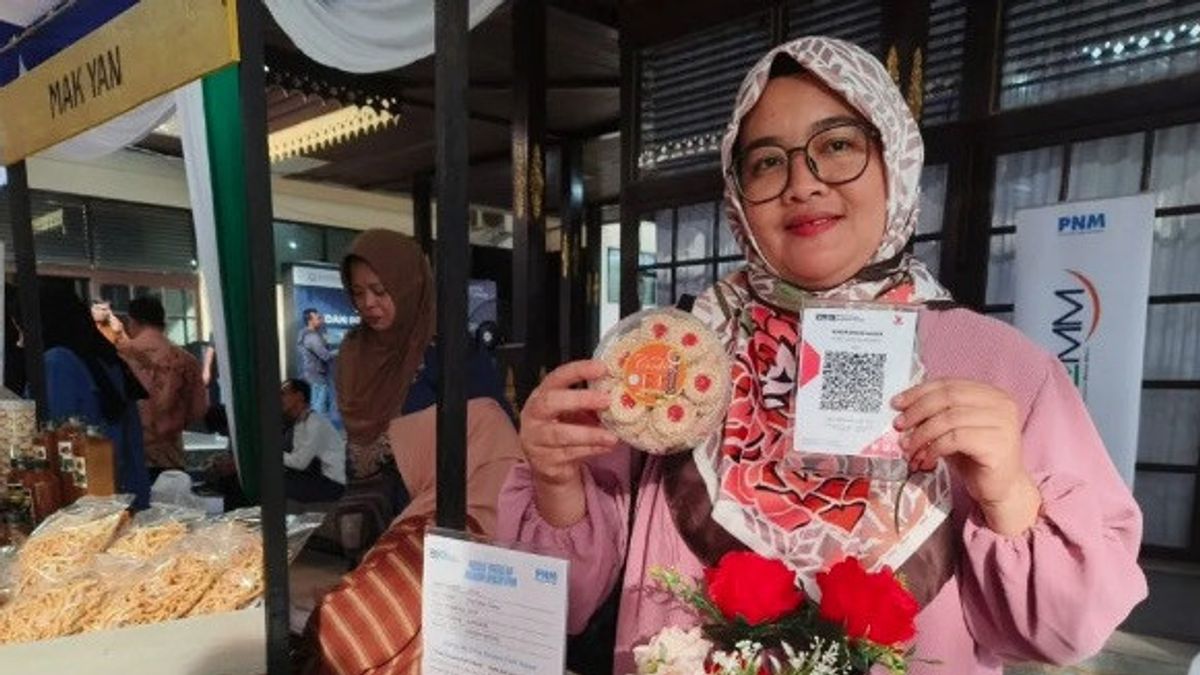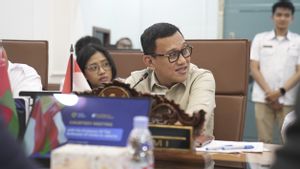JAKARTA The Indonesian government is asked not to be provoked by pressure from the United States (US) regarding tariffs and trade cooperation. Indonesia, according to economic observers, should ignore US complaints regarding QRIS and GPN.
The US, through the United State Trade Representative (USTR) aka trading negotiator, recently criticized Bank Indonesia (BI) regarding the national QR-based payment system or the Quick Response Indonesian Standard (QRIS) and the National Payment Gate (GPN).
Uncle Sam's related country complaint was stated in the National Trade Estimate (NE) Report on the 2025 Fereign Trade Barriers, which was published on March 31 or two days before President Donald Trump announced the resprocal rate.
The US government describes the reasons behind the application of import rates given to its trading partners. Indonesia, including one that is subject to a reciprocal rate of 32 percent. This additional tariff is beyond the basic tariff imposed, which is 10 percent.
In the document, the US nudges QRIS and GPN which are considered non-tariff trade propagators. The US assesses that the policy of the country's payment system shows a tendency to be protective and increasingly closed to global business actors.
"US companies are concerned because they were not informed earlier about the change in the QR code policy, and were not involved in the process of drafting the system, including how the system should be integrated with the existing global payment system," USTR wrote in its report.
Responding to this, Coordinating Minister for the Economy Airlangga Hartarto said the government had coordinated with BI and the Financial Services Authority (OJK) regarding input from the US side.
However, economist Center of Economic and Law Studies (Celios) Nailul Huda rejected QRIS and GPN as a medium of exchange for US trade rates.
"Not everything that the US wants us to do," Huda told VOI.
Since its launch of Bank Indonesia in August 2019, which coincided with the 74th Anniversary of the Republic of Indonesia, QRIS has experienced massive developments. The main goal of QRIS is to unite various QR Codes from payment system service providers.
The launch of QRIS has also accelerated the adoption of digital payments by contactless, especially during the COVID-19 pandemic. Citing data on the Blueprint of the 2025-2030 Indonesian Payment System (BSPI), QRIS as a means of payment system transactions until June 2024 has been used by 32.7 million merchants and 50.5 million users or grew 160.8 percent on an annual basis.
Meanwhile, BI is targeting 58 million QRIS users by the end of 2025. Currently, the number of users has reached 55 million, with a transaction value of IDR 86 trillion to IDR 90 trillion per year.
BI is also aggressively developing the use of QRIS. Now, QRIS can not only be used for domestic transactions, but also abroad. QRIS service users can now transact in Malaysia, Singapore, Thailand, Laos, Brunei Darussalam, to Japan and South Korea.
The GPN, which the US government also mentioned, was launched by BI in 2017 with the aim of building a national payment system that is safe, efficient, and interconnected. With GPN, customers can make transactions with any bank debit card on various ATM and EDC (Electronic Data Capture) machines without being bound by certain bank-owned networks. This system strengthens the domestic payment system and reduces dependence on overseas networks.
The commotion about QRIS and GPN comes amid the import rates imposed by the US. Indonesia, which is subject to a 32 percent reciprocal rate, is still negotiating with Uncle Sam's country regarding the tariff.
However, economist Celios Nailul Huda refuses to make QRIS and GPN a medium of exchange of interest for US trade rates. "Not everything that the US wants we can do," said Huda.
Therefore, when the US interferes with QRIS policies in the midst of tariff negotiations, the Indonesian side has the potential to be harmed. Because people do not get the ideal service for financial transactions.
The efficiency of financial transactions will be disrupted. This is not good for the stability of the monetary system or the national payment system," said Huda again.
The massive development of QRIS, plus the BI policy related to GPN, is said to have threatened two giant US-made payment products, namely Mastercard and Visa. According to Huda, these two products do not offer what the market wants, which wants non-card transactions while neither Visa nor Mastercard still rely on cards.
Visa and Mastercard certainly don't want to lose dominance. QRIS as a national payment system can interfere with their position if it continues to grow," he said.
"They have minimal innovation. The market wants to use a mobile phone, not a card," Huda added.
Contacted separately, Director of Celios Bhima Yudhistira also said Washington's concerns regarding the use of QRIS and GPN solely because their presence significantly eroded the dominance of Mastercard and Visa.
SEE ALSO:
Bhima said, since the QRIS, Indonesia is no longer fully dependent on the payment system of US payment companies. In fact, he predicts that the trend of the credit card business in Indonesia will continue to decline as QRIS is increasingly popular among the public.
"The problem of business competition alone, because since the existence of QRIS Indonesia is no longer dependent on the payment system for Visa and Mastercard. The trend of the credit card business is expected to decrease this year," explained Bhima.
Regarding the US request for Indonesia to follow up on all negotiating points, including the QRIS issue, Bhima encouraged the government to continue to prioritize domestic interests.
"So Indonesia's attitude should be allowed to continue to advance the role of QRIS. Don't follow up on all points of US negotiations, you need to look at Indonesia's domestic interests," said Bhima ending.
The English, Chinese, Japanese, Arabic, and French versions are automatically generated by the AI. So there may still be inaccuracies in translating, please always see Indonesian as our main language. (system supported by DigitalSiber.id)













